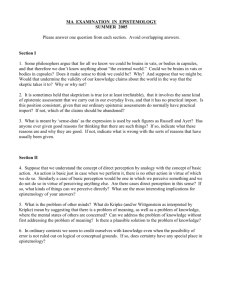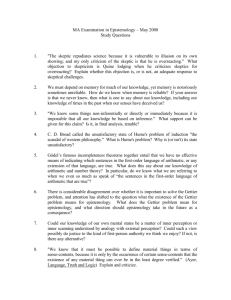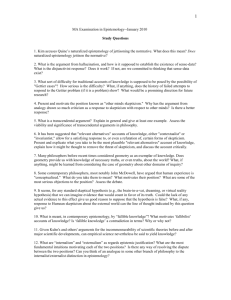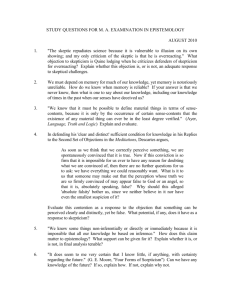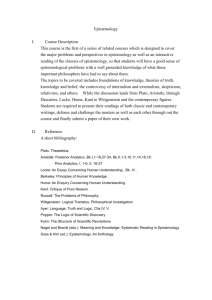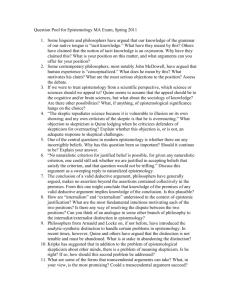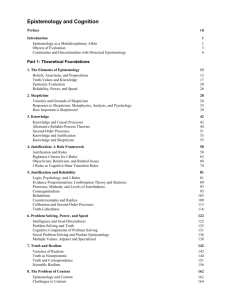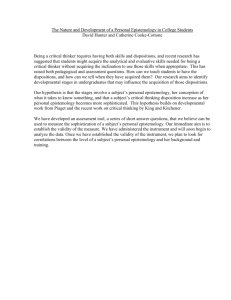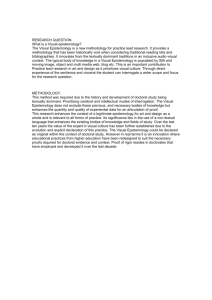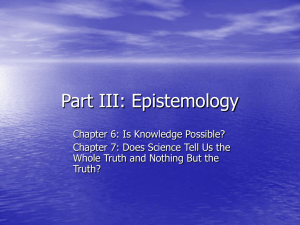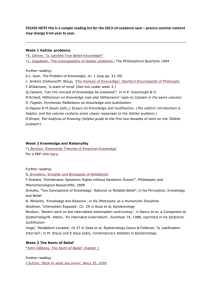STUDY QUESTIONS IN EPISTEMOLOGY, SUMMER 2005
advertisement
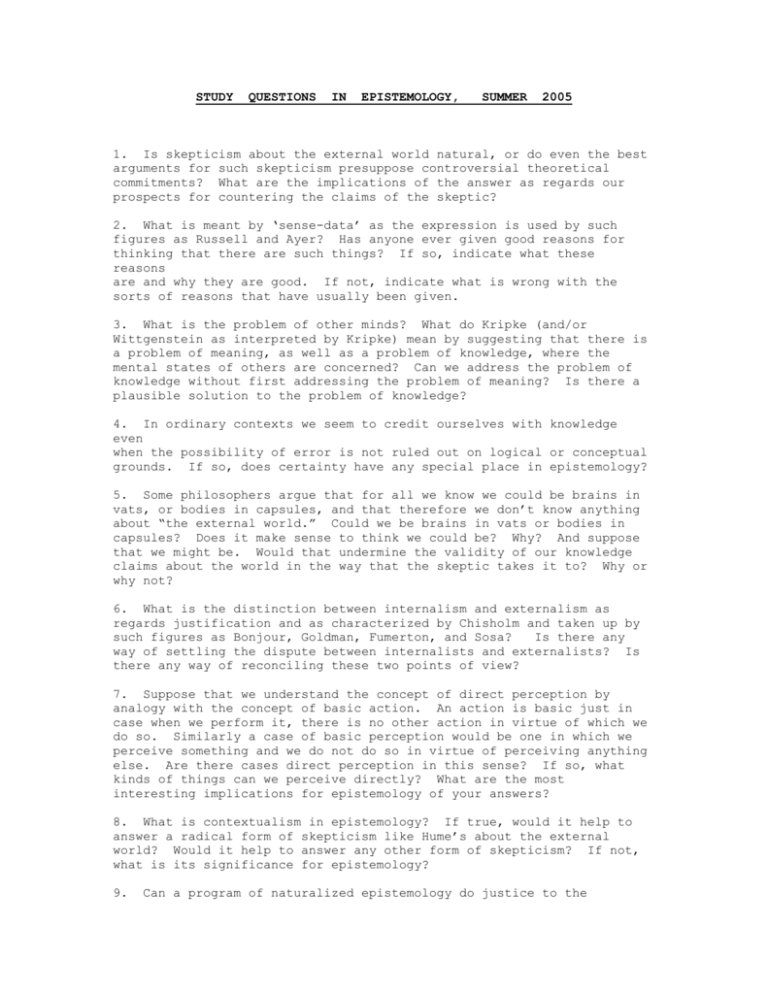
STUDY QUESTIONS IN EPISTEMOLOGY, SUMMER 2005 1. Is skepticism about the external world natural, or do even the best arguments for such skepticism presuppose controversial theoretical commitments? What are the implications of the answer as regards our prospects for countering the claims of the skeptic? 2. What is meant by ‘sense-data’ as the expression is used by such figures as Russell and Ayer? Has anyone ever given good reasons for thinking that there are such things? If so, indicate what these reasons are and why they are good. If not, indicate what is wrong with the sorts of reasons that have usually been given. 3. What is the problem of other minds? What do Kripke (and/or Wittgenstein as interpreted by Kripke) mean by suggesting that there is a problem of meaning, as well as a problem of knowledge, where the mental states of others are concerned? Can we address the problem of knowledge without first addressing the problem of meaning? Is there a plausible solution to the problem of knowledge? 4. In ordinary contexts we seem to credit ourselves with knowledge even when the possibility of error is not ruled out on logical or conceptual grounds. If so, does certainty have any special place in epistemology? 5. Some philosophers argue that for all we know we could be brains in vats, or bodies in capsules, and that therefore we don’t know anything about “the external world.” Could we be brains in vats or bodies in capsules? Does it make sense to think we could be? Why? And suppose that we might be. Would that undermine the validity of our knowledge claims about the world in the way that the skeptic takes it to? Why or why not? 6. What is the distinction between internalism and externalism as regards justification and as characterized by Chisholm and taken up by such figures as Bonjour, Goldman, Fumerton, and Sosa? Is there any way of settling the dispute between internalists and externalists? Is there any way of reconciling these two points of view? 7. Suppose that we understand the concept of direct perception by analogy with the concept of basic action. An action is basic just in case when we perform it, there is no other action in virtue of which we do so. Similarly a case of basic perception would be one in which we perceive something and we do not do so in virtue of perceiving anything else. Are there cases direct perception in this sense? If so, what kinds of things can we perceive directly? What are the most interesting implications for epistemology of your answers? 8. What is contextualism in epistemology? If true, would it help to answer a radical form of skepticism like Hume’s about the external world? Would it help to answer any other form of skepticism? If not, what is its significance for epistemology? 9. Can a program of naturalized epistemology do justice to the normative element in epistemology as it has been traditionally understood? 10. Do either: a. What are some of the main examples of Gettier (or Gettier-type) problems? Is there a plausible way of handling them? b. Michael Williams has claimed that nothing of any importance hangs on whether we solve the Gettier problem. What is the Gettier problem? Is Williams right? 11. It is sometimes held that skepticism is true (or at least irrefutable), that it involves the same kind of epistemic assessment that we carry out in our everyday lives, and that it has no practical import. Is this position consistent, given that our ordinary epistemic assessments do normally have practical import? If not, which of the claims should be abandoned? 12. What is Hume’s “problem of induction”? How significant is this problem? What do you think is the best response to it?
